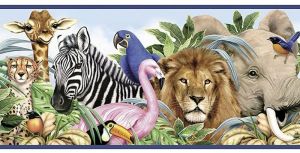ЕГЭ по английскому языку. Аудирование. Задания высокого уровня А8 - А14.
Проверяемые умения: умение понимать полно и точно содержание прослушанного текста.
Тип задания: задание с множественным выбором ответа.
Система оценивания: верное выполнение каждого задания с выбором ответа оценивается в 1 балл. За неверный ответ или отсутствие ответа выставляется 0 баллов.
Рекомендации для учащихся.
- Перед тем как прослушать запись, прочитайте сначала только вопросы в задании, без предложенных вариантов ответа.
- Найдите в вопросах ключевые слова и подберите к ним синонимы.
- Во время прослушивания следует прекратить чтение вопросов и сконцентрировать внимание на понимании аудиозаписи.
- Помните, что во всех заданиях на множественный выбор порядок вопросов соответствует тому порядку, в каком информация появляется в тексте.
- Во время первого прослушивания отметьте ответы, которые вы считаете верными. При выборе ответа следует руководствоваться исключительно той информацией , которая даётся в тексте, а не тем, что вы сами знаете или думаете по данному вопросу.
- Обращайте внимание не столько на слова, сколько на контест.Те варианты ответа, которые в аудиозаписи имеют контекст, отличный от того, который они имеют в вопросе, являются неверными.
- Будьте осторжны с теми вариантами ответа, в которых встречаются те же слова и фразы, что звучат в записи.Часто это неверные варианты. Помните, что правильные ответы должны включать ту же информацию, что изапись. Но эта информация может быть передана другими словами. Для этого часто используют синонимы.
- Правильный ответ не обязательно включает всю ту информацию, которая звучит в записи.
- Иногда вопросы имеют общий характер. Они касаются высказанных мнений, намерений автора или контекста ситуации. Отвечая на них, следует обращать внимание не только на отдельные фразы, но на более длинные отрезки или текст в целом.
- Во время второго прослушивания проверьте выбранные ответы и обратите внимание на ту информацию, которая быпа пропущена во время второго прослушивания.
- Не оставляйте ни один вопрос без ответа, даже если после второго прослушивания есть сомнения в правильности выбора.
- По окончании выполнения всего раздела "Аудирование" перенесите ответы в Бланк ответов № 1.
- Желаем успехов!
Тренировочное задание
Вы услышите интервью. В заданиях А8 -А14 обведите цифру 1, 2, или 3, соответствующую выбранному вами варианту ответа. Вы услышите запись дважды.
 1. Mind the list of proper names:
1. Mind the list of proper names:
1. Kenya - Кения
2. the Green Belt Movement - Движение Зелёный Пояс
3. the National parks - Национальные парки
4. Ben Zephani - Бен Зефени, активист и участник движения
5.Wangari Maathai - Венгари Маатхай, лауреат Нобелевской Премии,
лидер движения в Кении
6.the BBC Wildlife channel - радиоканал BBC, посвящённый защите
дикой природы
7.the KWS: the Kenya Wildlife Service - государственное учреждение
Служба по защите дикой природы
2.Mind the list of key words:
1.deforestation - вырубка, уничтожение лесов
2.to threaten - угрожать
3.habitat - среда обитания
4. to be rejected - быть изгнанным
5.pride - стая
6.herd - стадо
7.pack - свора
8. be chased - подвергаться преследованию
9.charcoal - древесный уголь
10. cliche - избитая фраза, штамп
11.warden - директор, начальник
Int: Today in the studio we are talking to Ben Zephani, an activist and member of the environmental group the Green Belt Movement in Kenya. Welcome Ben.
Ben: Thank you.
Int: Well, you know, people nowadays talk a lot about environmental issues. There is great concern about wildlife and the future of the National Parks in Kenya. What's happening there?
Ben: One of the most serious environmental problems we are facing today is deforestation, which really affects both wildlife and people living around the forests. People need land for their own purposes, like growing crops and raising cattle. So they come, seize pieces of land, cut down trees and start cultivating the land. So many animals were, kind of, forced away. They had to leave their native habitats and find new hunting areas... That's not really a nice thing.
Int: And what's happening to the people who actually live around the forest area?
Ben: You know when you tend to interfere in a wild animal's habitat you somehow create an imbalance between people and animals. And sometimes it's not really a nice thing because animals tend to come close to where people live, which is really threatening.
Int: So, do they attack people?
Ben: Not that they really attack settlements but they do come in packs, groups, prides or herds constantly migrating from one place to another because of deforestation. So people are vulnerable at any time.
Int: You mean, if I lived there, I could be chased by an angry rhinoceros or an elephant?
Ben: No, actually they don't chase people because most of the time they just pass by. But at times you come into contact with an unusual animal. You know animals live in packs, so when one animal is rejected from its pack, it's an angry animal. It cannot join the other packs so it attacks anything and is extremely dangerous. It should not be disturbed. People can do nothing to help it. Anyone who dares to approach it is almost certainly doomed.
Int: Wow! Sounds horrible! I suppose no one would dare to try to catch these wild animals... Well, but what actually causes deforestation?
Ben: People burn wood to produce charcoal and sell it, because, as you know, people there have very poor living conditions, and they try hard to earn an extra dime to support their families. Charcoal is in great demand for cooking and other odd jobs, so people don't even have to travel anywhere to sell it. It's a good job. But it's so destructive.
Int: So what's being done to try and remedy this, or to try and counterbalance the effect?
Ben: There are three or four large activist groups that are coming together to discuss how to reduce damage to the environment. You all know the Nobel Prize winner Wangari Maathai who is a leader of the Green Belt Movement in Kenya. She's been trying to discourage people from destroying forests for a long time and to explain what deforestation does to the country and the environment in general and how it affects people in the forest areas. She teaches people to adjust to new conditions and environments. She moves with the times. Wangari supports National parks, conservation areas and safari parks in the country. She helps organize small businesses to learn to earn from ecotourism in the forest areas.
Int: Look, I've always wanted to go to Africa and I'm just wondering, if that whole safari business ...is really good; if everything you see on the BBC Wildlife channel, you know, documentaries, is true to life.
Ben: It's not a cliche, but it's something you have to experience when you get there on safari. The BBC has never lied to their viewers.
Int: Wow! So I could be just out there ... driving around in my car and on my own just seeing all those animals?
Ben: I am afraid they won't let you drive in your own car. They provide services for you. We have in Kenya an institute called the KWS: the Kenya Wildlife Service and it has its own wardens that are highly trained to protect you when you're in the forest. You just say where and when you want to go, what places and animals you would like to see. Tours are kind of regulated. For example, you will never be allowed to come close to feeding the animals.
Int: All right.

А8 Ben indicates __________ as one of the biggest environmental problems in Kenya.
1) loss of forest trees
2) growing numbers of cattle
3) lack of cultivated land
A9 According to Ben, the animals which change their habitat
1) are threatened by people
2) tend not to leave their hunting areas
3) may be dangerous for the people around forest areas
A10 Ben says that an animal that was rejected by its pack
1) needs extra attention
2) should be avoided by people
3) has to be destroyed
A11 Ben mentions the charcoal production as
1) an easy way to earn extra money
2) the business in which most Kenyans are involved.
3) the main reason of deforestation
A 12 Ben describes Wangari Maathai as the woman who...
1) helps her people to live in a new environment
2) invented safari parks
3) started ecotourism business
A 13 Ben assures that the BBC Wildlife channel documentaries on safari parks are
1) a cliche
2) accurate
3) not as good as the real thing
A14 The KWS wardens are trained to
1) serve and protect safari visitors
2) feed the wild animals
3) find the animals visitors want to see.
Check your answers with the key
A8 -1; A9 -3; A10 - 2; A11 - 3; A12 - 1; A13 - 2; A 14 --1.
Good luck at your exams!

| < Предыдущая | Следующая > |
|---|




